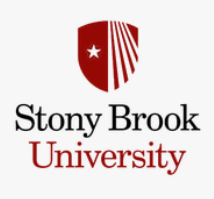Stony Brook University is launching a new interdisciplinary Department of Technology, AI, and Society, with an initial $1.4 million investment from New York State. This department aims to address the ethical and societal implications of artificial intelligence through collaborative research and education. The initiative is part of a broader effort to position New York as a leader in AI researc
Governor Kathy Hochul announced a $5 million initiative to establish departments, centers, and institutes focused on AI and Society across eight SUNY campuses. This funding aims to promote interdisciplinary collaboration, ethical AI research, and responsible data use. Stony Brook University is set to launch the Department of Technology, AI and Society as part of this initiative.
Long Island tech firms are increasingly integrating AI tools to enhance productivity and streamline operations. For instance, PassTech Development in Plainview utilizes ChatGPT's premium features to expedite software prototyping and development processes. However, this shift raises concerns about job displacement, particularly in roles involving repetitive tasks like data entry, as AI adoption
Stony Brook University marine physicist Kamazima Lwiza is developing an AI tool to predict hypoxic (low-oxygen) zones in Long Island Sound. These zones, which can be harmful to marine life, are influenced by factors like nitrogen pollution and climate change. Lwiza's research aims to enhance early detection and management of these environmental challenges
American Superconductor Corporation (AMSC) is poised to benefit from recent executive orders aimed at bolstering U.S.
Stony Brook University researchers have developed an AI-powered platform called Influencer, designed to assist individuals with limited design experience in creating promotional posts. Unlike existing tools that separate design and content generation, Influencer integrates both aspects, allowing users to specify prompts and context images. In a study comparing Influencer to Google Search combi
Stony Brook University is advancing AI-driven solutions to tackle climate change and improve healthcare. The university is working on AI tools for disease detection and treatment optimization, with a focus on personalized healthcare. In climate action, it is involved in the New York Climate Exchange, developing AI solutions for stormwater management, and applying AI in investment and risk management strategies.
Colleges are increasingly investing in artificial intelligence (AI) programs to enhance workforce readiness and attract students. Since the release of ChatGPT in late 2022, AI has become a focal point in higher education. Many institutions are offering specialized degrees, minors, and certificates in AI, particularly within computer science and engineering disciplines. For example, the University of Pennsylvania provides both undergraduate and master's degrees in AI engineering.
A recent Newsday article highlights the launch of New York's Empire AI Consortium, which aims to leverage artificial intelligence to tackle societal challenges such as climate change, cybersecurity, and hunger. The initiative is supported by over $400 million in funding from both government and private sectors. A key component of this effort is a $7 million supercomputer donated by the Simons F
Stony Brook University researchers Chao Chen and Prateek Prasanna have been awarded a four-year, $1.2 million grant from the National Cancer Institute to develop TopoQuant, an advanced imaging tool for breast cancer diagnosis and treatment. This tool aims to detect subtle changes in breast tissue architecture using a combination of two- and three-dimensional imaging techniques, including tomosynthesis, MRI, and conventional mammography. By integrating mathematical modeling and machine learning, TopoQuant seeks to enhance the early detection of cancer and assess treatment responses. Clinical collaborators from radiology, radiation oncology, surgery, and pathology will assist in evaluating the tool's effectiveness.


